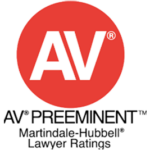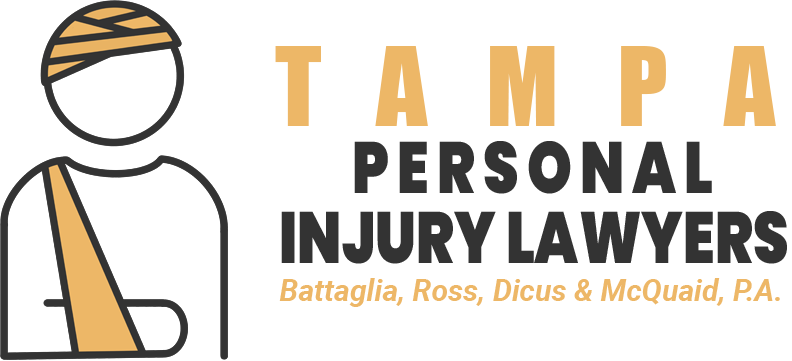If you have a Tampa personal injury claim and wish to resolve your dispute out-of-court, you need to know the difference between arbitration and mediation. These are two different pathways for solving a legal dispute that don’t require going to court. On one hand, mediation requires a third party to help facilitate a negotiation, while arbitration is a more formal and structured process for resolving a legal dispute.
A vast majority of personal injury cases get solved through mediation (around 97%, with half of those arising from a motor vehicle accident, according to the US Bureau of Justice). Read on to learn more about the differences between mediation and arbitration and which one is the right process to better suit your personal injury claim.
Table of Contents
ToggleResolving a Tampa Personal Injury Claim Through Mediation
Mediation is a form of conflict resolution wherein a neutral third party, or a mediator, makes a final decision on a legal dispute. This method uses a collaborative approach to helping both parties meet an agreement on their own, as opposed to letting both sides present their case and then letting the mediator make a decision. You’ll still need to hire a Tampa personal injury attorney for mediation to ensure your best interests are protected.
Mediation in a Tampa personal injury claim is also a “non-binding” process, meaning the mediator could be a highly qualified person with conflict resolution skills and a high degree of legal knowledge, yet aren’t qualified to make an official ruling on the matter.
Ultimately, the two parties at odds with a point of contention are responsible for resolving their disagreement. However, the mediator is present to ensure that all parties have a fair and equal opportunity to express their concerns and opinions. The mediator can help spearhead deliberations and eliminate any bias or partiality.
In sum, mediation is an out-of-court method for resolving a legal dispute where the two opposing parties resolve the issue with a mediator present but must voluntarily come to an agreement amongst themselves.
When Should I Use Mediation for a Tampa Legal Dispute?
You might personally find mediation more appealing or better suited to meet your needs if:
- You and the other party want the freedom to solve your issue primarily on your own
- You want to keep your costs lower l, as mediation usually costs less than litigation and arbitration.
- You don’t find it necessary to walk away from the dispute with a legally binding agreement or outcome.
- Some may find mediation to be less of a cumbersome process than arguing a case in court. However, if you go to court, you won’t actually be arguing a case yourself; you will hire an experienced Tampa personal injury lawyer to represent you in court.
What is the Process of a Tampa Personal Injury Mediation
First, all of the parties involved in the matter will meet at a meeting, most often at a round table or other enclosed, private area with a table to accommodate all parties. Each party can then learn their and everyone else’s role in the mediation process. Part of the job of the mediator is to ensure everyone is well acquainted with one another.
Your Tampa personal injury lawyer will also be present during the mediation process, as well as the defense attorney (or the attorney representing the opposing party). There may also be insurance adjusters, representatives, or some other party present on behalf of the insurance company.
Everyone will sign a confidentiality agreement to ensure all negotiations and discoveries don’t leave the mediation circle. Again, this is one of the advantages of mediation – all of your case details can be kept a private matter, so you don’t have to worry about personal details getting leaked or going to trial and having any private information put on blast. Remember, mediation is a process people use to avoid going to trial.
The actual Mediation will then start with opening statements from the mediator and the attorney representing the personal injury victim. Following that, the defense attorney will have their chance to share their opening statements, and then the negotiation process begins.
Mediators know that letting each party share opening statements can evoke conflict and arouse frustration for both parties, so some decide to forgo it to avoid creating tension. The main goal is to reach an agreement.
Then, there will be a joint session with all parties involved, followed by each party getting separated into different rooms. The mediator will then sort of act as an anchor and a messenger, relaying messages and presenting demands to and from each party.
From there, the parties should eventually reach an agreement and approach a settlement agreement. Once they reach an agreement, everyone will sign a document with the terms of the agreement. Your attorney can finish all of the necessary paperwork from there and file them with your local court.
How Does Arbitration Differ From Mediation?
Arbitration is a more structured process that more closely resembles a court case. All parties involved will have the opportunity to make their opening statements and present their sides of the story to an “arbitrator.”
Remember that mediation involves a third party to “mediate” the parties. Similarly, arbitration is a conflict resolution process that uses the help of a third party called an “arbitrator.” However, unlike mediation, where the parties resolve the dispute and come to a conclusion on their own, arbitration grants more authority to the third party (arbitrator). In arbitration, the arbitrator will hear both sides of the argument and then make the final decision about the issue.
While arbitration is similar to the process of a court case, it’s less formal than an actual court proceeding (which allows a judge or jury to make the final ruling). The final contractual agreement can be binding or non-binding – it depends on the specific stipulations that the arbitrator enforces.
How Do I Know if Arbitration Is Right for Me?
Arbitration might be the way for you to go if you:
- You want a concrete outcome that is legally binding for the other party.
- Want to move the resolution process along faster. With mediation, there’s a lot more back and forth between two parties, and consequently can become a lengthy process.
- Want assistance from a trained third party who is impartial.
- If you want to solve your dispute with a less formal procedure than going to court.
- And if you want to save on litigation costs, as arbitration is generally less costly than going to court
What Is Med-Arb?
Sometimes, you can use a “hybrid” approach, applying practices of both mediation and arbitration to reach a conclusion. For instance, the conflicting parties may initially decide to use a non-formal, structured, and deliberate process to reach a consensus. However, if they cannot reach an agreement, they might resort to using arbitration and letting the arbitrator decide on an outcome.
A Final Note on Mediation vs. Arbitration
When deciding whether to use mediation or arbitration for dispute settlement, you first need to consider your unique circumstances and the relationship between you and the opposing party. Here are some key points to remember:
- Mediation is a collaborative settlement where both parties participate in deciding the result, but it is not binding.
- Arbitration is a less formal way to reach a resolution than going to court, where the involved parties allow an arbitrator to conclusively wrap up the dispute.
- In cases where the two parties cannot work together to come to an agreement on their own, arbitration is a better option.
- If you’re still unsure about which approach to dispute, consider contacting an experienced Tampa personal injury lawyer.
Contact a Tampa Personal Injury Lawyer Today
If you have any further questions about whether it’s best for your personal situation to use mediation, arbitration, or litigation, ask a knowledgeable Tampa personal injury lawyer. We offer a free initial consultation.






























